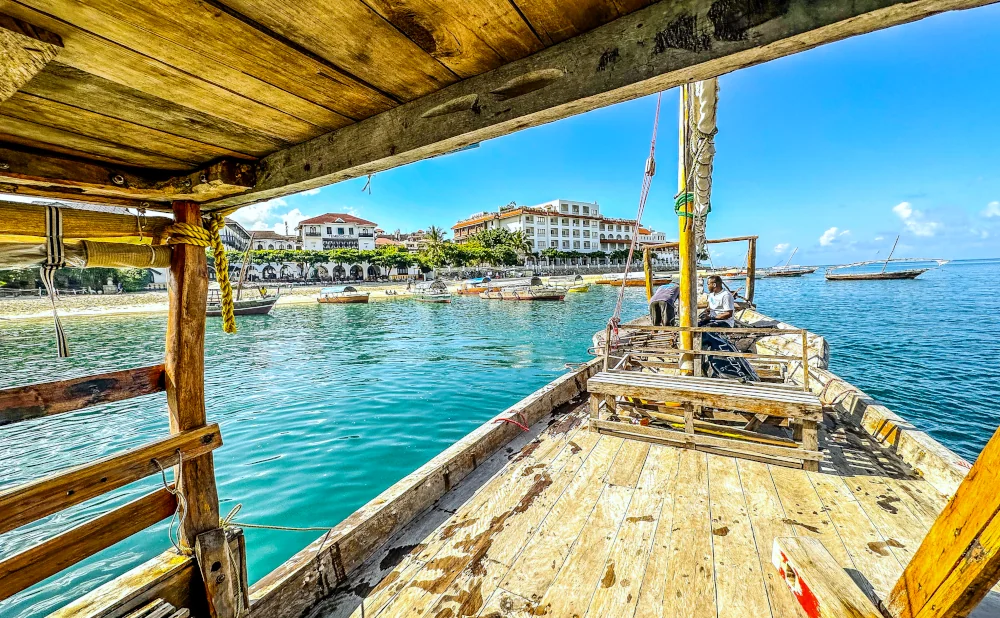Exploring the Rich History of Kilwa Island
Off the southern coast of Tanzania lies a hidden gem. Kilwa Island, a place steeped in history and cultural significance.
Once a thriving Swahili city-state, Kilwa played a crucial role in the Indian Ocean trade. From the 9th to the 19th centuries, it was a bustling hub of commerce and cultural exchange.
Today, the island is a UNESCO World Heritage Site. Its ruins, including the Great Mosque of Kilwa and the Husuni Kubwa palace, bear testament to its rich past.
But Kilwa is more than just an archaeological site. It's a living testament to the resilience and adaptability of its people.
In this article, we invite you to join us in exploring the rich history of Kilwa Island. We'll delve into its past, its present, and the ongoing efforts to preserve its legacy for future generations.
The Swahili City-State of Kilwa
Kilwa Island, part of the Kilwa archipelago, was once a prosperous Swahili city-state. Its strategic location off the Tanzanian coast made it a key player in the Indian Ocean trade.
The island's history is a blend of African, Arab, Persian, and Portuguese influences. This cultural melting pot is reflected in its historical remains, from the coral stone buildings to the intricate carvings on the ruins.
The Shirazi dynasty is credited with the initial development of Kilwa as a major trade hub. Under their rule, the island flourished, attracting traders from Asia, the Middle East, and other parts of Africa.
Today, Kilwa's ruins offer a tangible connection to this past, providing a unique window into the life and times of this ancient Swahili city-state.
Kilwa's Golden Age: Trade and Prosperity
Kilwa's golden age was marked by prosperity and extensive trade networks. The island's strategic location made it a key point for trade in gold, ivory, and other precious goods.
Kilwa coins, once used as currency, have been found as far away as Australia. This indicates the vast reach of Kilwa's trade networks, extending to Asia, the Middle East, and other parts of Africa.
The island's wealth and cosmopolitanism attracted traders and travelers from around the world. Among them was the famous Moroccan explorer Ibn Battuta, who documented his visit to Kilwa in his travel chronicles.
This period of prosperity left a lasting imprint on the island, shaping its culture, architecture, and the lives of its inhabitants.
Architectural Marvels of Kilwa
Kilwa Island is home to several architectural marvels. These structures reflect the island's rich history and diverse cultural influences.
The island's architecture is characterized by coral stone buildings. These unique structures are a testament to the ingenuity and craftsmanship of their builders.
From mosques and palaces to forts, each site tells a story. They offer a tangible connection to the past and the lives of Kilwa's ancient inhabitants.
The Great Mosque of Kilwa
The Great Mosque of Kilwa is one of the earliest mosques on the East African coast. It stands as a testament to the island's Islamic heritage.
The mosque's design reflects the architectural style of the Swahili period. It offers insights into the religious practices and cultural traditions of the time.
Visitors can explore the mosque's ruins and imagine the grandeur of the Swahili period.
The Husuni Kubwa Palace
The Husuni Kubwa palace ruins reflect the wealth and architectural ingenuity of the Kilwa Sultanate. The palace was a symbol of Kilwa's prosperity during its golden age.
The palace's design showcases the sophisticated urban planning and construction techniques of its time. It offers a glimpse into the lives of sultans and the opulence of the royal court.
Today, the palace ruins serve as a reminder of the transient nature of power and the enduring legacy of culture.
Gereza Fort and the Portuguese Influence
Gereza Fort, a later addition by the Portuguese, showcases the island's colonial history. The fort's design reflects the military architecture of the time.
The fort's presence on the island is a testament to the impact of external forces on local societies. It offers insights into the island's history of resilience in the face of changing political landscapes.
Visitors can explore the fort and learn about the island's colonial past and its effects on the local population.
The Decline of Kilwa Island
Kilwa's decline began in the 15th century. This was due to Portuguese interference and the rise of competing trade centers.
The island's history includes periods of prosperity as well as decline and resilience. Its story is a testament to the adaptability of its people in the face of changing political and economic landscapes.
Today, Kilwa's ruins are a reminder of the transient nature of power. They also highlight the enduring legacy of culture and the interconnectedness of ancient civilizations.
Kilwa Kisiwani: A UNESCO World Heritage Site
Kilwa Kisiwani is a part of the Kilwa archipelago. It is recognized by UNESCO for its archaeological importance.
The island's heritage sites provide a tangible connection to the past. They offer insights into the lives of its ancient inhabitants.
The preservation of Kilwa Kisiwani is crucial. It helps us understand the broader history of the Swahili coast and its people.
Visiting Kilwa Today: Travel Tips and Conservation
Kilwa Island is accessible by boat from the Tanzanian mainland. It makes for a unique day trip or extended visit destination.
Conservation efforts are underway to preserve Kilwa's historical sites. The local community is involved in these efforts, welcoming visitors and sharing the island's history.
Kilwa offers a serene and educational alternative to more commercialized tourist destinations in Tanzania. It's a peaceful retreat for those looking to immerse themselves in history.
The Legacy of Kilwa Island in Swahili Culture
Kilwa's legacy is evident in the cultural practices and traditions of the local population today. The island serves as a living museum, where visitors can step back in time and imagine the grandeur of the Swahili period.
Kilwa's contribution to the Swahili civilization is a significant chapter in African history. The island's heritage sites provide a tangible connection to the past and the lives of its ancient inhabitants.
The island's history of trade and cultural exchange is a powerful example of early globalization. Kilwa's story is not just about the past; it's about the ongoing efforts to preserve and interpret its rich heritage.
Kilwa's cultural heritage is a draw for tourists seeking authentic and meaningful travel experiences. The island's past is a rich tapestry of stories waiting to be discovered by curious visitors.
The Enduring Significance of Kilwa
Kilwa Island's rich history and cultural heritage make it a unique destination in Tanzania. Its ruins, artifacts, and stories offer a window into the past, revealing the island's pivotal role in the Indian Ocean trade and the Swahili civilization.
Preserving Kilwa's historical sites is crucial for understanding the broader history of the Swahili coast. The island's ongoing story is one of preservation, education, and sustainable tourism, ensuring its legacy for future generations.











